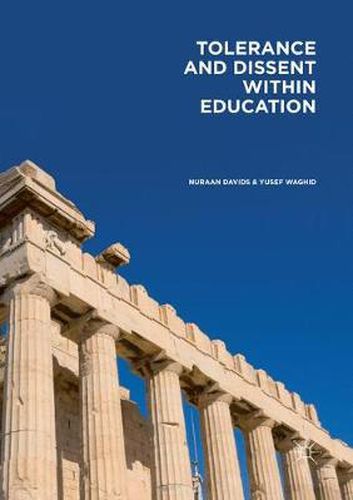Readings Newsletter
Become a Readings Member to make your shopping experience even easier.
Sign in or sign up for free!
You’re not far away from qualifying for FREE standard shipping within Australia
You’ve qualified for FREE standard shipping within Australia
The cart is loading…






This book explores how the concept of tolerance might be understood, cultivated and enacted in and through educational encounters. It argues that by opening up educational encounters to allow for ‘dissent’ - that is, disagreement, criticism and open dialogue - our everyday social life experiences and relationships would flourish, and potentially allow for a more peaceful and harmonious co-existence alongside those with whom we disagree. Dissent does not mean that ‘anything goes’; what is needed is considerate and responsible recognition of distinct and diverse perspectives. Tolerance is sometimes regarded as a simple and uncritical celebration of difference, and sometimes dismissed as a necessary and resentful acceptance of others. Here, the authors make a compelling case for ‘conditional tolerance’, which requires us to continuously reflect on the limits of what we are willing to tolerate. The book will be an indispensable resource for researchers and students working in the areas of education, philosophy and sociology, particularly those with an interest in educational freedom, democracy and social justice.
$9.00 standard shipping within Australia
FREE standard shipping within Australia for orders over $100.00
Express & International shipping calculated at checkout
This book explores how the concept of tolerance might be understood, cultivated and enacted in and through educational encounters. It argues that by opening up educational encounters to allow for ‘dissent’ - that is, disagreement, criticism and open dialogue - our everyday social life experiences and relationships would flourish, and potentially allow for a more peaceful and harmonious co-existence alongside those with whom we disagree. Dissent does not mean that ‘anything goes’; what is needed is considerate and responsible recognition of distinct and diverse perspectives. Tolerance is sometimes regarded as a simple and uncritical celebration of difference, and sometimes dismissed as a necessary and resentful acceptance of others. Here, the authors make a compelling case for ‘conditional tolerance’, which requires us to continuously reflect on the limits of what we are willing to tolerate. The book will be an indispensable resource for researchers and students working in the areas of education, philosophy and sociology, particularly those with an interest in educational freedom, democracy and social justice.